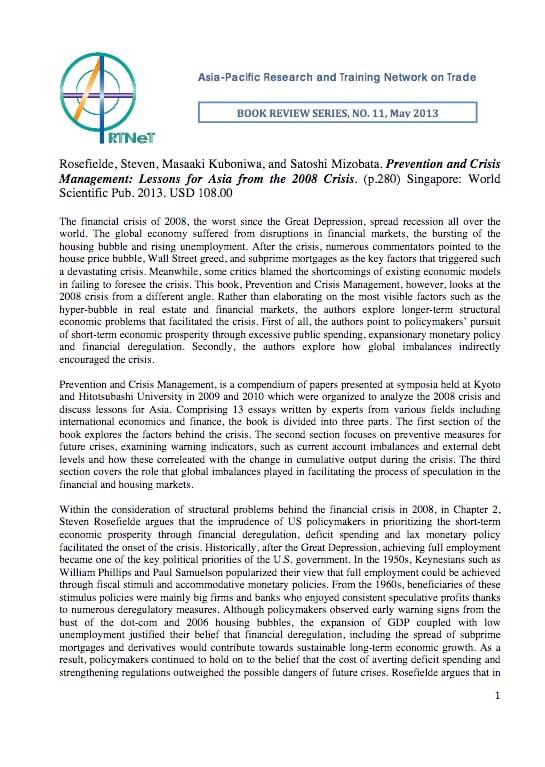Prevention and Crisis Management: Lessons for Asia from the 2008 Crisis.

The financial crisis of 2008, the worst since the Great Depression, spread recession all over the world. The global economy suffered from disruptions in financial markets, the bursting of the housing bubble and rising unemployment. After the crisis, numerous commentators pointed to the house price bubble, Wall Street greed, and subprime mortgages as the key factors that triggered such a devastating crisis. Meanwhile, some critics blamed the shortcomings of existing economic models in failing to foresee the crisis. This book, Prevention and Crisis Management, however, looks at the 2008 crisis from a different angle. Rather than elaborating on the most visible factors such as the hyper-bubble in real estate and financial markets, the authors explore longer-term structural economic problems that facilitated the crisis. First of all, the authors point to policymakers’ pursuit of short-term economic prosperity through excessive public spending, expansionary monetary policy and financial deregulation. Secondly, the authors explore how global imbalances indirectly encouraged the crisis...
